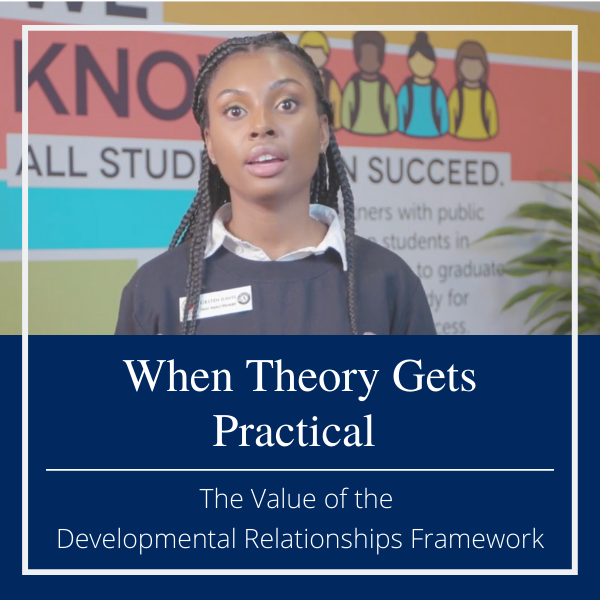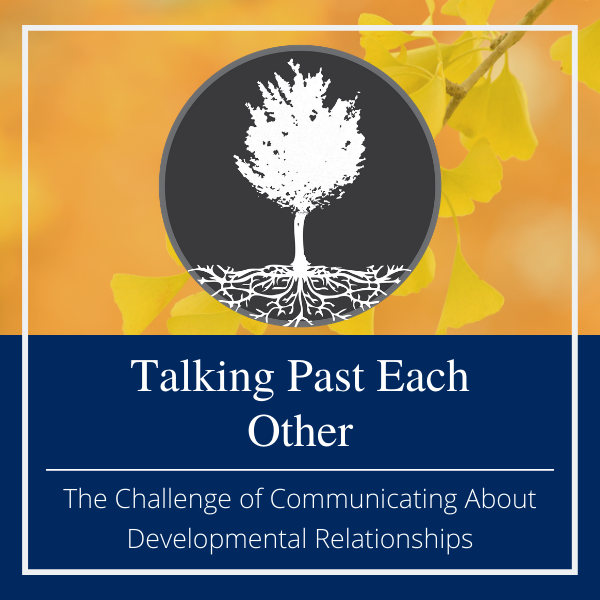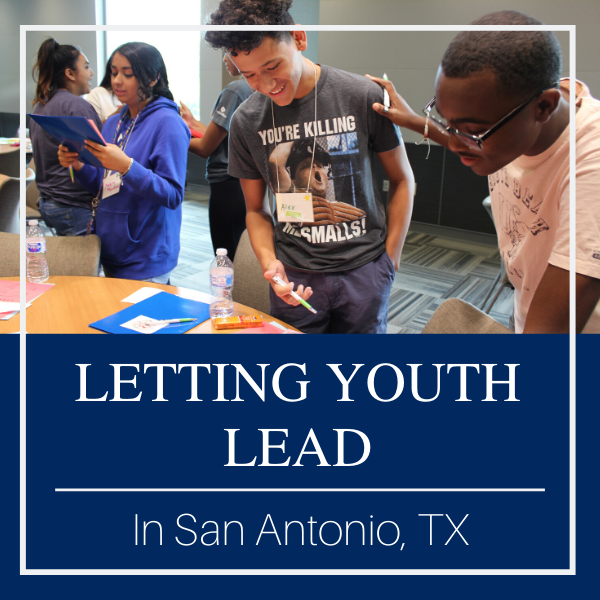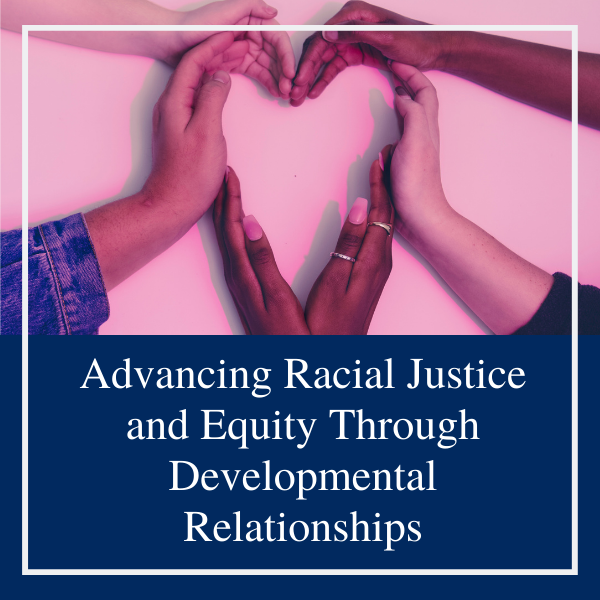Blog
When Theory Gets Practical: The Value of the Developmental Relationships Framework
By Eugene C. Roehlkepartain, Ph.D., Senior Scholar
Kurt Lewin (1890 – 1947)—a pioneer in social psychology, “action research,” and organizational development—is widely quoted as saying two things (among many others):
“There is nothing so practical as a good theory.”
“If you want truly to understand something, try to change it.” 1
 The intentional dialectical thinking within each of those aphorisms is a lot like many projects we at Search Institute undertake with partners. These projects are research projects— and they are also applied projects. We embrace what seem like paradoxical statements, believing that our most innovative work occurs when we lean into these kinds of creative tensions.
The intentional dialectical thinking within each of those aphorisms is a lot like many projects we at Search Institute undertake with partners. These projects are research projects— and they are also applied projects. We embrace what seem like paradoxical statements, believing that our most innovative work occurs when we lean into these kinds of creative tensions.
That was certainly the case when we and five partners (see “Partners” box below) launched in 2018 the Relationships for Outcomes Initiative (ROI). This signature project, which just ended, sought to shed light on this central question:
Can youth organizations become more intentional and inclusive in nurturing developmental relationships, particularly with and among young people in marginalized communities?
“There Is Nothing So Practical as a Good Theory”
This is the first of five blogs that will reflect on the ROI experience. Lewin’s most famous aphorism about the practical value of a good theory is a good springboard. All partners found a primary value in the partnership was in the ways the Developmental Relationships Framework enhances practice by focusing on specific, well-rounded actions that were possible throughout their organization.
They were most animated about the elements and specific actions within the framework that can be practiced, discussed, problem-solved, and reinforced both within and across teams in their organizations. What does it mean to Challenge Growth? How do you do it effectively with particular groups of youth—or with a particular youth? When might a youth need more express care than challenge growth, or vice versa? In the process, everyone can be more intentional and effective in cultivating relationships.
I’ll let our partners use their own words to describe some of the ways the Developmental Relationships Framework became highly practical to their organizations. (Also watch the video below.)
Identify strengths: “It’s helped me identify my relationship development strengths and the way I actually am in relationships with youth. It’s helped me to see areas of growth that I can try to work on. It’s definitely given me some good perspective and has been a good catalyst for coming up with ideas.”
Identify gaps: “There are aspects of relationships that don’t come naturally to us. I think a lot of us say, ‘I don’t need this, because I know how to have relationships. I’ll form relationships without having to think too hard about it.’ But this was helpful in terms of thinking about the times where that’s not true.”
Make the implicit explicit: “I think having this specific vocabulary is super useful,” one partner recounted. “It’s a lot of stuff we think about anyway, but having the actual words makes me think about it more intentionally.” Another expanded more concretely:
“Before collaborating with Search Institute, relationships were an implicit part of what we were intending to achieve within our program. But they were never explicit, and therefore they were never developed really intentionally. By learning about the core components of developmental relationships, this has allowed us to really focus on how best to cultivate and bring those relational aspects to life in our curriculum, in our training of staff and volunteers and teachers, and in how we understand and assess our program, and talk about its impact.”
Align services and opportunities: “What the developmental relationships has done has given staff a toolkit. So, when they are giving a service to those students, does that service align with one of these elements of a developmental relationship?”
Grapple with complexity: “It personally helped encourage me to grapple with the idea of these really complex, multi-layered and potentially transformative relationships, not as in classroom, getting along-ness, but really, as in one-on-one, individual, deep [relationships].”
Consistency, trust, and reciprocity: “This model starts with familiarity and consistency. Consistency builds trust. Youth begin to respond more positively to adult overtures. They open up—share more of themselves. That further fuels familiarity, comfort and being known. Youth begin to take initiative within the relationship, seeking out connection, asking for help.”
One More Paradox in Developmental Relationships
Actually, a bigger challenge is not that relationships seem challenging to so many people, but that most people presume they know what relationships are, why they matter, and who is supposed to build them with whom. The difficulty is that many of their notions don’t actually match with what young people (and perhaps the rest of us) really need.
Too often, when the public thinks of what makes a great mentor or teacher or parent or youth worker, images of superparents or supermentors or superteachers come to mind—the kind they make movies about. But that’s not what we hear from our ROI partners and the young people who spend time with their staff. It all seems so much more ordinary. A staff person from one of the partner organizations recalled:
“I just had one student who, at the beginning, wouldn’t even look me in the eyes. But over time, as we built that relationship and trust, he was able to open up. I’ve seen a whole new part of him, and that part is amazing.”
That example reminded me of this quote that is attributed to a diminutive leader with a huge impact, Mahatma Gandhi: “Whatever you do will be insignificant, but it is very important that you do it.” Similarly, when it comes to relationships, the little things seem to matter most.
1 Quoted in The Practical Theorist: The Life and Work of Kurt Lewin, by Alfred Jay Marrow (1977).
ROI Partners
These five youth-serving organizations partnered with Search Institute in Relationships for Outcomes (ROI). Each partner included a local “design site” where we collaboratively listened to youth, staff, and parents, prototyped and tested tools, gathered feedback, and collected data.
 |
 |
 |
 |
 |
| Camp Fire Columbia Council , Portland, OR |
Communities in Schools in San Antonio Program at South San Antonio High School, TX |
Office in Boston, MA |
National Center for Families Learning Toberman Neighborhood Center, San Pedro, CA |





